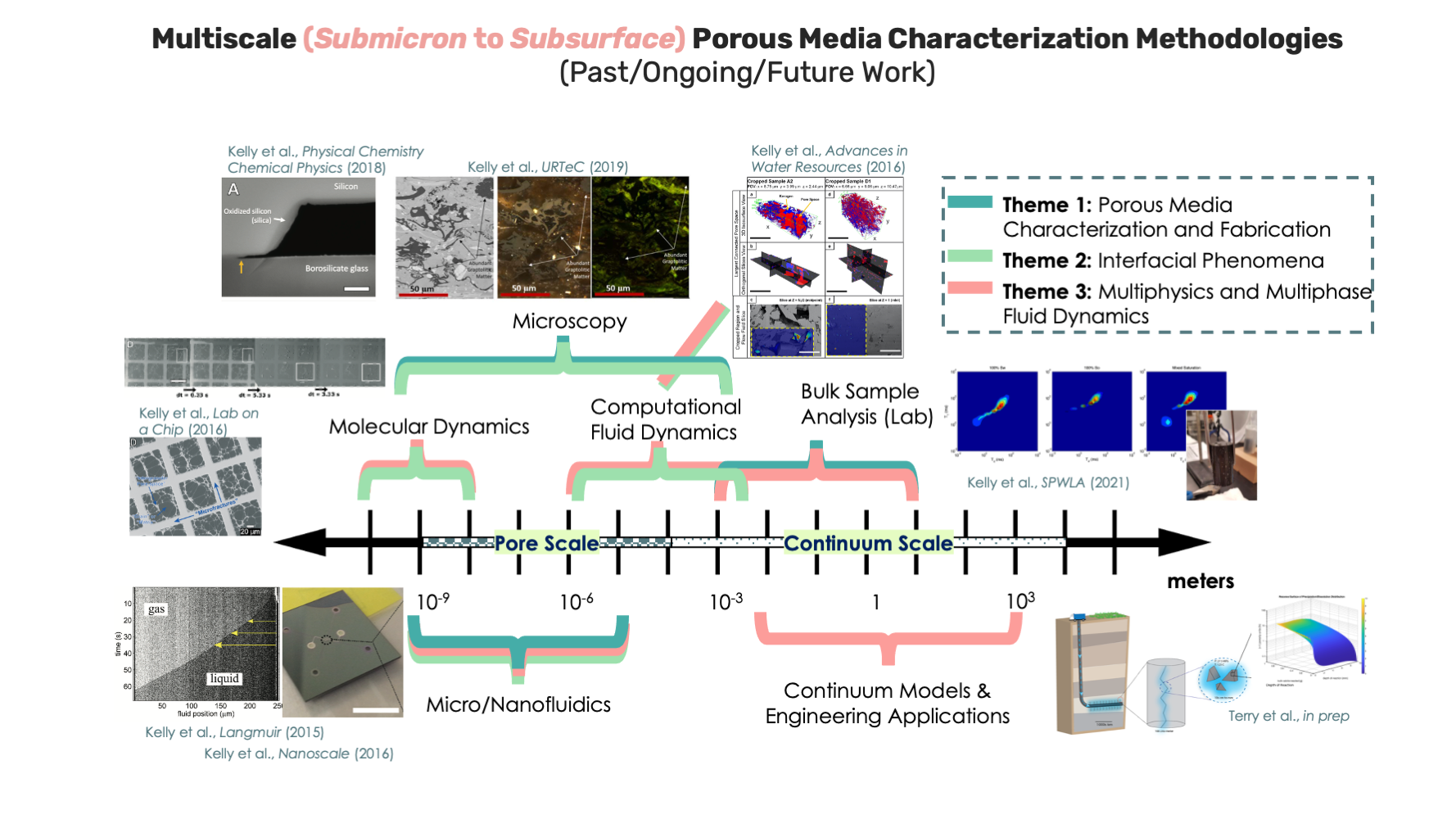Submicron to Subsurface Characterization:
Transport Phenomena in Porous Media for Sustainable Energy Applications
The transport of fluid, mass, and heat in natural and engineered porous media will play a critical role in the next frontier of sustainable energy practices, particularly subsurface activities and unconventional resource recovery.

Energy-related porous materials are ubiquitous and include geologic media such as sedimentary rocks composed of minerals, clays, and organic matter and engineered materials such as membranes and cements. Sustainable subsurface energy applications include (a) long-term waste containment (e.g., carbon capture, utilization and storage and deep nuclear waste storage), (b) robust fluid storage and energy cycling (e.g., hydrogen storage, geothermal), and (c) low-waste energy and resource production (e.g., oil and gas, mineral, and groundwater production and enhanced geothermal systems). However, subsurface systems are often riddled with multiscale heterogeneity and subjected to complex multiphase fluid flow situations. My research approach uses a combination of laboratory rock core/sample analyses, microscopy, micro/nanofluidics, and computational fluid dynamics (CFD) characterization methods to address the following overarching research question: How do porous media heterogeneities (e.g., spatial changes in micro- and macroscopic compositional fabric, pore types, and surface chemistry), fluid-solid interactions, and unconventional properties (e.g., nano-confinement effects) impact critical fluid storage and deliverability properties and levers?
Our lab specializes in the submicron characterization of capillary imbibition in varied nanochannels, nanopores, and nano-networks to quantify how interfacial interactions influence fluid and solute transport in low permeability porous media. The nanoscale findings are upscaled in terms of engineering variables such as effective pore diameter, viscosity and diffusivity for continuum modeling of tight rock energy production and storage. The findings are also related to parallel core analyses, microscopy, microfluidics, and CFD investigations as well as subsurface field-scale observations.